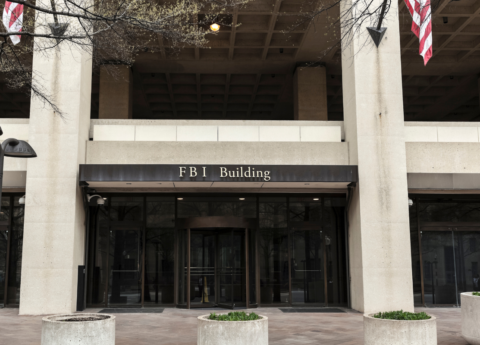With Kentucky’s growing inmate population and high rates of recidivism, what we need in 2017 is legislation that will make these problems better, not worse. The criminal justice bills filed so far this session are a mix of both. While several bills could lead to fewer people being incarcerated or create more ways for Kentuckians with records to get a second chance, other bills would put more people in prison, particularly those struggling with addiction.
Here are some of the bills that could help to provide a second chance to former inmates, reduce recidivism rates and/or decrease criminal justice costs in our state:
- Several bills would make it easier for Kentuckians with records to get jobs, which enables them to support their families and avoid returning to jail/prison.
- Some bills build on last year’s important legislation that made it possible for some low-level nonviolent felony convictions to be expunged after a five-year waiting period. Four bills would reduce the filing fee for expungement from $500 to $200 (SB 37, SB 72, HB 17 and HB 86). HB 86 also makes it possible for those financially unable to afford to file for expungement to have the fee waived and adds several additional low-level (Class D) felonies to the list of those that qualify. In addition, SB 16 would add some additional low-level felonies to the list of those that qualify for expungement but make the waiting period for those felonies 10 years instead of 5.
- HB 76 would “ban the box” on job applications, making it illegal for employers to consider or require the disclosure of prior criminal history as part of the initial job application for most positions.
- HB 22 would help to reduce the number of Kentuckians in jail, prevent reoffending and result in savings to counties. The bill would create explicit authority in the law for some offenders to participate in a day reporting program rather than serve jail time. A day reporting program is a community-based, structured sentencing program operated by a county jail that combines supervision with resources and services. One such program that has been operating in Louisville provides electronic monitoring for participants on home incarceration who are required to report to the program for alcohol and drug testing as well as cognitive skills training. It has been effective at reducing repeat offending and also promoting employment. The program’s cost is $18 per day per participant, compared to the $65 per day cost for incarceration in Jefferson County jail. Jefferson County saved $2 million dollars from this program over several years.
- HB 89 would result in fewer Kentuckians being saddled with a felony charge and its collateral consequences for relatively minor offenses. The bill would raise the threshold level for a number of nonviolent felony offenses — making the unlawful registration of a car for the purpose of tax evasion a felony only if the amount is $1,500 or higher, for instance; currently the threshold is just $100.
A number of bills, on the other hand, increase criminal penalties and would result in longer sentences and further growth in the state’s inmate population:
- HB 70 would result in more Kentuckians serving very long sentences, including for some drug offenses. The bill would make the state’s current laws for repeat offenders even harsher than they already are, increasing the sentence to life without the possibility of parole for those with three or more convictions for high-level Class A or Class B felonies or capital offenses.
- Several bills would result in more Kentuckians with drug addiction problems serving long sentences. While heroin and fentanyl addiction are very serious, harmful problems in our state, it is now widely understood that increased penalties are not effective at reducing addiction. Of particular concern with several of these bills are measures that would charge Kentuckians with addiction problems as drug traffickers.
- SB 14 would make the exchange of any amount of heroin or fentanyl (an even more powerful, synthetic opioid) a Class C felony carrying a 5 to 10 year sentence even for first time offenders. Currently, the transfer of a small amount of these drugs (under two grams) is considered a Class D felony, with a 1 to 5 year sentence. Under Kentucky’s very broad definition of trafficking, one addict sharing drugs with another with no cash involved is considered to be drug trafficking.
- HB 46 would make the transfer of any amount of fentanyl or carfentanil (an even more powerful synthetic opioid) a Class C felony for trafficking for the first offense. Currently these drugs do not carry with them harsher penalties than heroin.
- HB 52 would also increase penalties for fentanyl. Similar to the above two bills, the exchange of any amount of fentanyl, a fentanyl derivative (including carfentanil) or analogue would be considered a Class C felony charge for trafficking for the first offense. Unlike the two previous bills, however, if a defendant is determined by a court to have a substance use disorder the charge would be reduced to a Class D felony for the first offense. The bill would also create the new offense of aggravated fentanyl trafficking for 10 grams or more of fentanyl or fentanyl derivatives or analogues, which would be a Class B felony for the first offense. A Class B felony carries with it a 10 to 20 year sentence.
Kentucky’s inmate population has already been on the rise, even with the important reform efforts passed in 2011. Legislation that promotes harsher penalties worsens this situation. Several of the bills proposed so far this session lock up more people who are struggling with addiction, which is costly to the state and has a negative impact on individuals and families across Kentucky badly in need of treatment. Efforts that instead increase access to second chances and substance abuse treatment would help to move the state forward.



